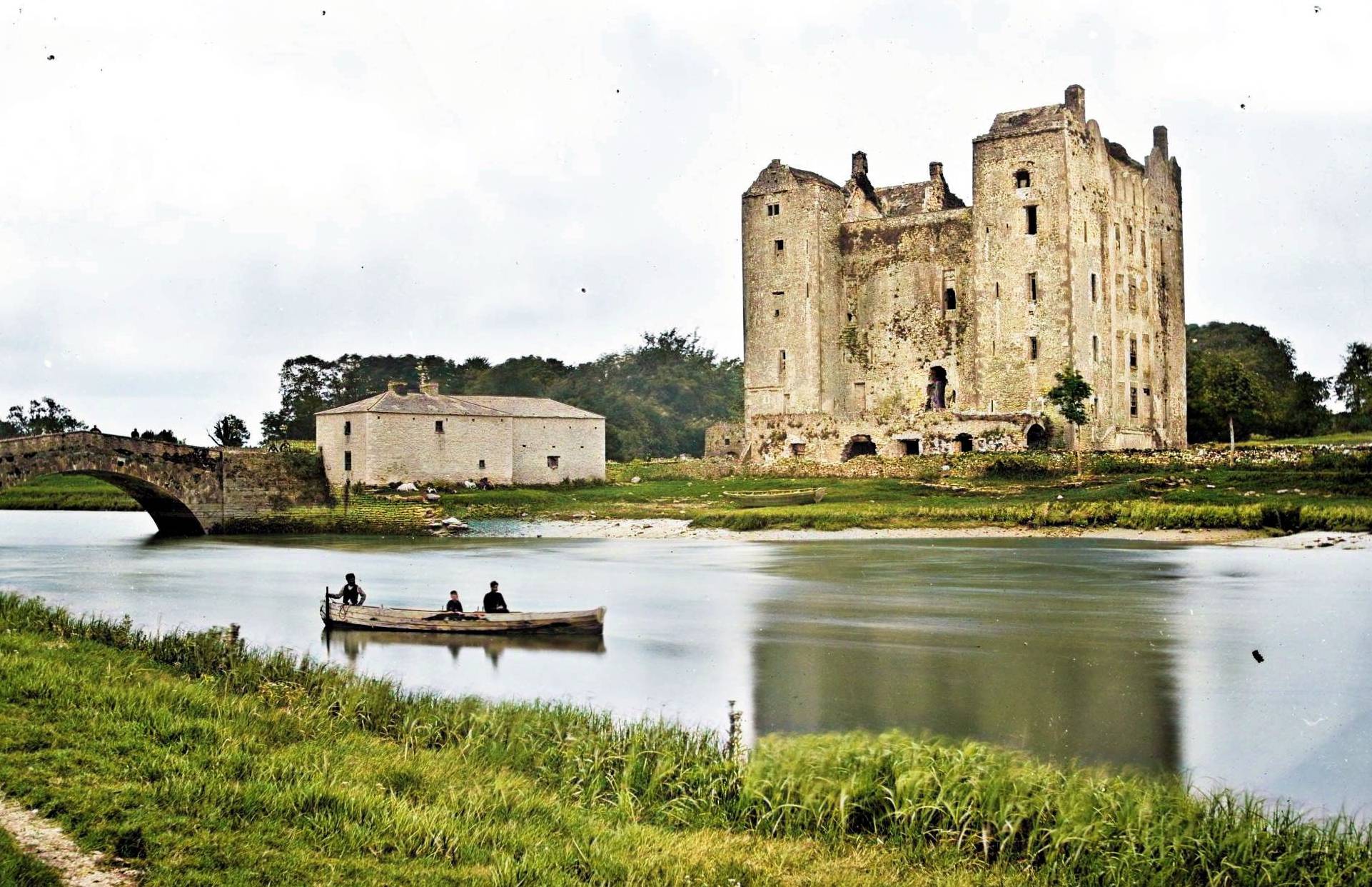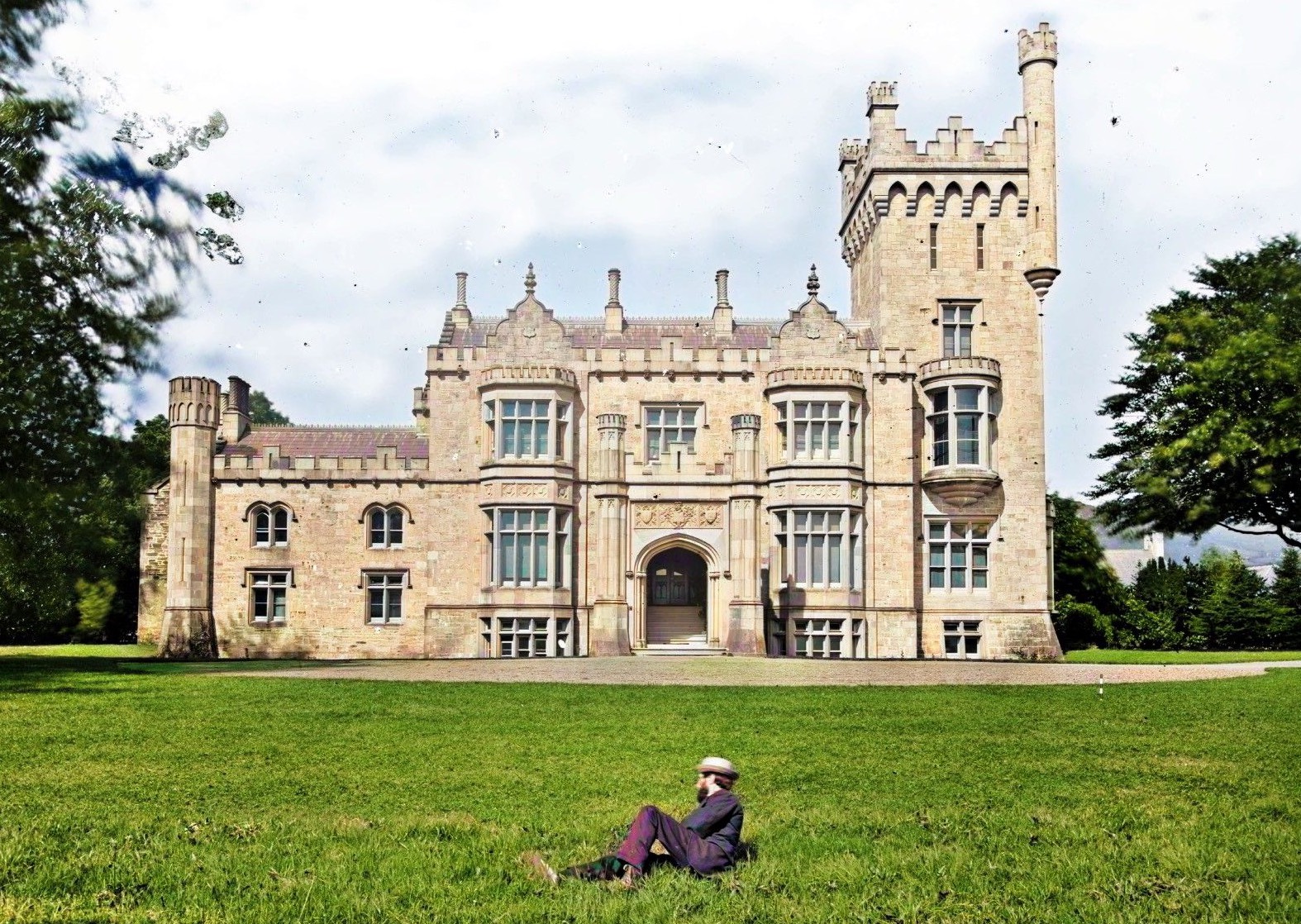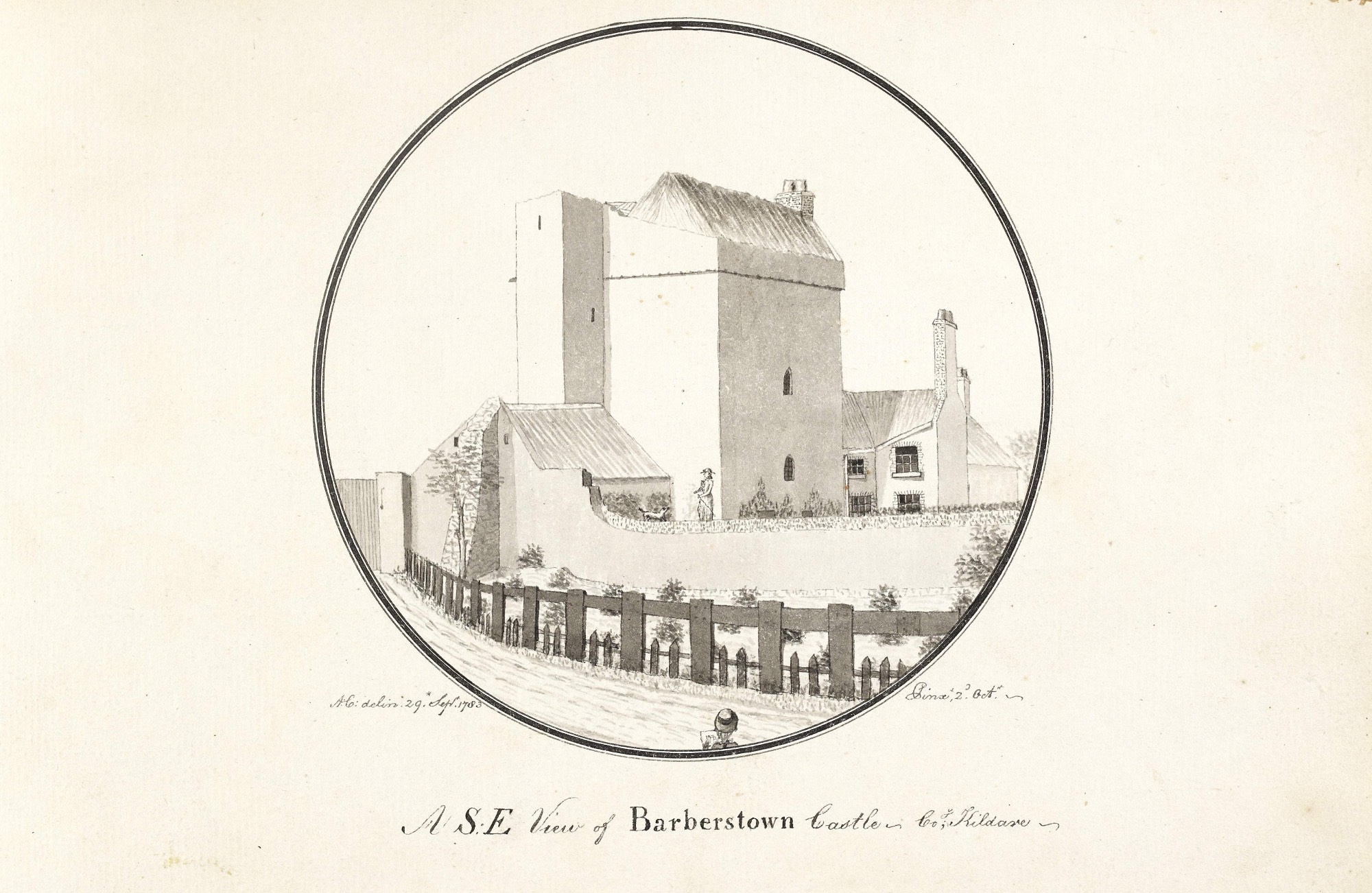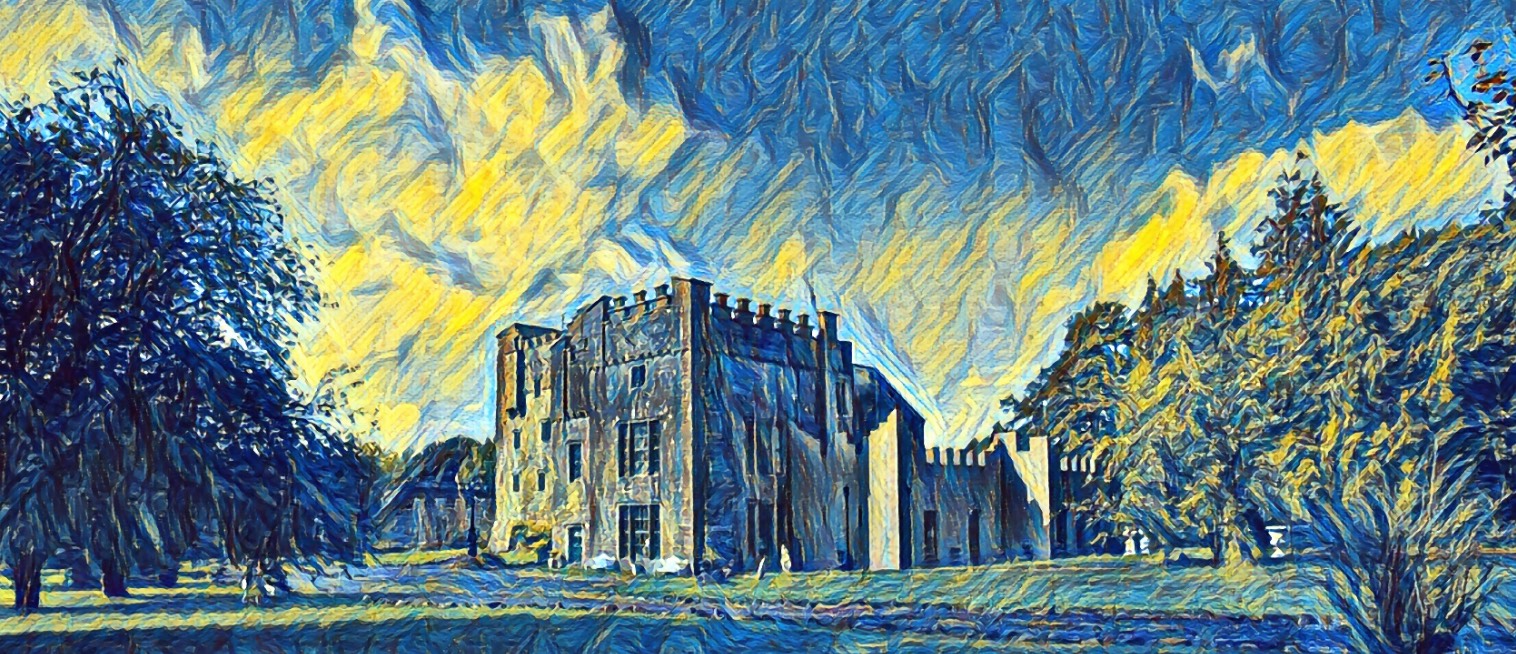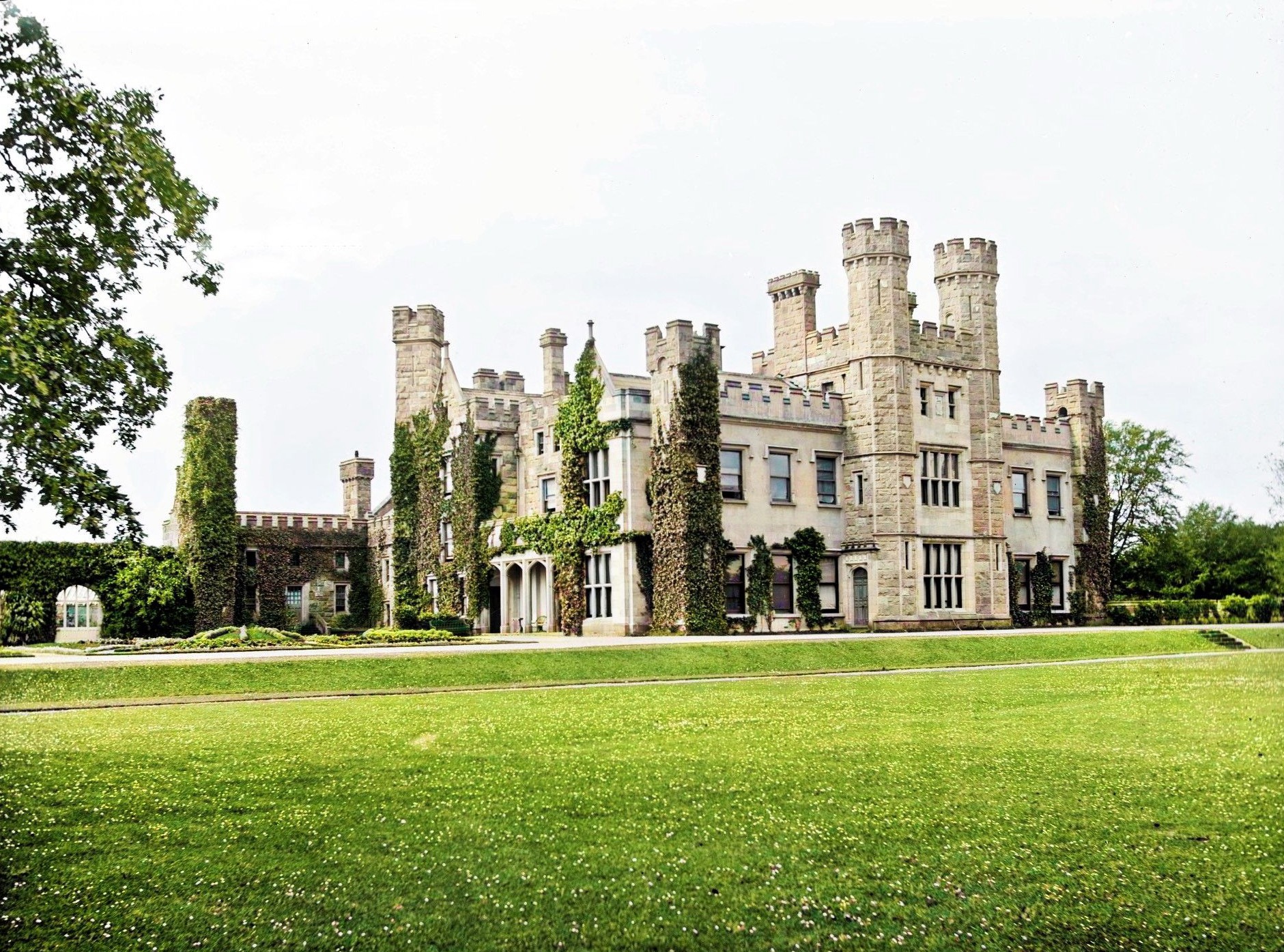Round Tower at Castledermot Co. Kildare
Ireland's most architecturally rebellious round tower defied every medieval convention; sporting a ground-level entrance, granite walls thick as fortress ramparts, and a vaulted corridor that physically married it to its neighboring church across five centuries of bold modifications.
Round Tower at Castledermot Co. Kildare
This remarkable round tower at Castledermot stands as one of Ireland’s most architecturally complex and historically layered examples, representing centuries of construction, modification, and adaptive reuse. Rising to approximately 20 meters in its surviving state, the tower demonstrates an extraordinary combination of medieval and post-medieval building phases.
Unique Construction and Materials
The tower is built primarily of granite with limestone pinnings—small stones used to fill gaps and level courses in the masonry. With an interior diameter of 2.5 meters and massive walls 2.37 meters thick, this tower is among the most substantially built round towers in Ireland. The exceptional wall thickness suggests either defensive considerations or the need to support significant later modifications.
Ground-Level Entrance – An Irish Rarity
What makes this tower truly exceptional is its ground-level entrance through a flat-lintelled battered (sloping) doorway. This places Castledermot among the extremely rare Irish round towers with ground-level access, joining only Scattery Island as confirmed examples of this architectural anomaly. Most Irish round towers have elevated doorways positioned 2-4 meters above ground for security purposes.
Multi-Period Architecture
The tower’s current appearance reflects multiple building campaigns spanning several centuries. The original medieval structure has been significantly modified with later additions that transformed its character and function:
The medieval phase includes the original round tower construction and the arched window on the first floor, following traditional Irish ecclesiastical architectural forms.
Fifteenth-century modifications introduced the remarkable vaulted corridor connecting the tower to the adjacent church. This corridor features wicker centering—temporary wooden framework used during vault construction—representing sophisticated medieval building techniques. This connection transformed the tower from a standalone structure into an integrated part of the church complex.
Sixteenth-century additions included the flat-headed windows at the upper levels and the distinctive medieval-style crenellations (castle-like battlements) above two string courses. These modifications gave the tower a more fortress-like appearance, possibly reflecting the turbulent conditions of 16th-century Ireland when many ecclesiastical buildings were fortified.
Interior Organisation
The tower contains five floors, though the modern floor arrangement does not correspond to the original medieval levels. This suggests significant internal reconstruction, probably during the 15th or 16th-century modification campaigns. The alteration of floor levels indicates the tower was adapted for new functions that required different spatial arrangements from its original ecclesiastical use.
Architectural Significance
The combination of features makes Castledermot’s round tower unique in Ireland: the ground-level entrance, the connecting corridor to the church, the massive wall thickness, and the layered architectural history spanning from medieval times through the 16th century. This represents not just a round tower, but a complete architectural evolution showing how these structures adapted to changing religious, defensive, and practical needs.
Good to Know
Location: Castledermot, County Kildare
Height: Approximately 20 meters (lower portion surviving)
Materials: Granite with limestone pinnings
Interior diameter: 2.5 meters
Wall thickness: 2.37 meters (exceptionally thick)
Unique features: Ground-level entrance, church connection via vaulted corridor
Construction phases: Medieval origin, 15th-century corridor, 16th-century upper modifications
Architectural rarity: One of only two confirmed ground-level entrance round towers in Ireland
Tags
Visitor Notes
Added by
IrishHistory.com
Bradley, J., Halpin, A., and King, H.A. 1986 Urban Archaeological Survey – County Kildare (4 vols.). Unpublished report commissioned by the Office of Public Works, Dublin.

